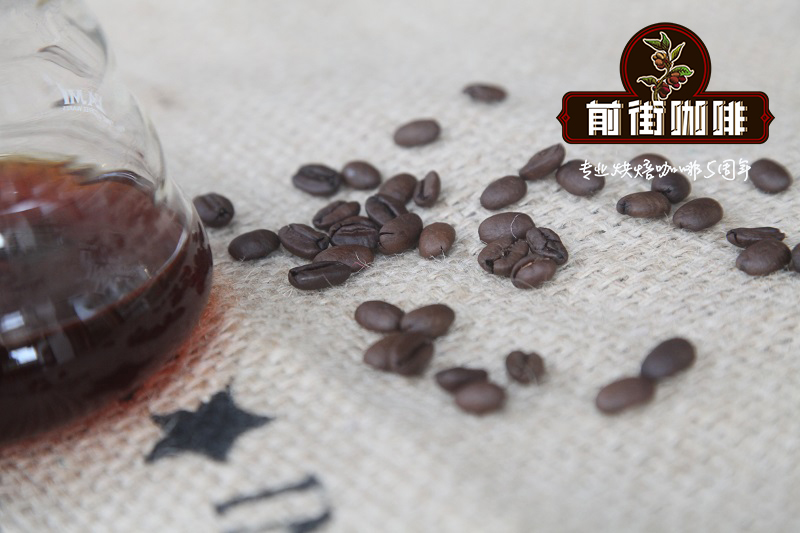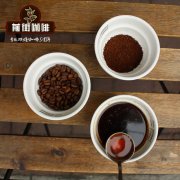Papua New Guinea Coffee beans sour? Tyrola Cherry Plan Coffee quality and Flavor characteristics

Asian coffee, unlike Europe and America, generally do not like acid, hate bitter. Generally do not like acid. I have to choose coffee beans that are darker. However, there is a new growing area-Papua New Guinea, which produces coffee beans with a strong and solid taste of mantenin, but with low acidity and clean flavor. It is a good choice for those who don't like sour taste! Papua New Guinea is located in the southwest of the Pacific Ocean, a volcanic belt around the Pacific Ocean. It belongs to volcanic geology and has fertile soil, which is an important natural condition for breeding good coffee. Although there is a good environment, the current share of coffee beans in the world is not high, only 0.7%. Coffee is very important to Papua New Guinea as it is the only cash crop in the Highlands and is a very important source of livelihood for 40% of the country's smallholder households, more than 2 million of them. Most of the coffee beans in Papua New Guinea are planted in the highland, and the proportion of Arabica is as high as 95%. The treatment method is mainly to wash and ferment in the first stage and dry them in the sun. The main varieties are Bourbon, Arusha and Mundo Novo. In Pakistan, important coffee-producing provinces are Eastern Highlands, Nga, Western Highlands and Chimbu provinces. Most of them are located at an altitude of 1200-1900 meters. They have a Central American style. The production system is mainly small farmers, and a few have large plantations or government specific support programs. Papua New Guinea coffee beans, in recent years by many people respected, because the taste is solid, but low acidity, flavor is very clean, very much in line with Asian coffee preferences, is a rising Asian coffee producing area. Baroda Manor by Ben. Ben Colbran was founded in the 1960s. The Cobron family has always acted as collectors and intermediaries for large multinational traders, ensuring a consistent and high quality performance of coffee under direct trade. In high season, the red pass cherries harvested on the same day are immediately sent to Baroda Manor for washing and processing. Coffee farmers can get paid immediately after the coffee cherries are screened and inspected for quality. Then the estate goes through a series of treatments: de-pulping, fermentation, washing, drying, etc. Now in its third generation, run by Ben's son Nickel and grandson Chris, the Cobron family not only runs the estate but also buys coffee berries from estates and independent farmers. In 2005 Chris started the Tairora Cherry Project, which aims to increase transparency in transactions and improve procurement processes with neighbouring smallholders. The Terrara Cherry Program is a mixture of four varieties, including Tyoica, Arusha, Bourbon and Caturra. The beans came from every corner of the village, and the Tyrola was the largest tribe in the area, so Chris chose the name to symbolize all the people in the area who contributed to the coffee. In early 2010, MTC(Australia's leading fine coffee importer) and the Coburn family began working together to bypass large multinational traders and focus on discovering unique, small batches of fine coffee. Every season, the Cobron family inspects small farmers and buys the best coffee berries in the area. During these 50 years of collaboration with the estates and small farmers, the Coburn family not only provided assistance in their expansion and operation, but also built roads, piers, schools and driveways in recent years. The Cobron family is not only a coffee and berry plantation for the residents of the Ramali Valley, but also an object of their reverence.
Important Notice :
前街咖啡 FrontStreet Coffee has moved to new addredd:
FrontStreet Coffee Address: 315,Donghua East Road,GuangZhou
Tel:020 38364473
- Prev

Introduction of coffee flavor of honeybee cooperative in Neri, Kenya introduction of Kenyan AA top grade coffee
Traditionally, Kenyan coffee has a distinct black plum tone, and many people will be deterred by friends who are afraid of sour. But the coffee beans produced by the Honey Cooperative in Kenya are very different, with the same flavor as his name, with obvious honey sweetness in addition to the slight acidity of berries. The entrance will certainly subvert your traditional impression of Kenya, oh honey cooperative (T
- Next

How about Peruvian Rose Summer Coffee? does the award-winning Santa Claus Manor taste good?
Rose Summer Variety of Santa Claus: 100% Arabica (Geisha) Rose Summer Origin: tea Mayou, Peruvian production season: 6-9 treatment: red honey SCA score: 90.62altitude: 1600m: 10.3% density: 835g (165g) annual output weight: 6000kg/ annual output weight: 25kg product characteristics Santa Claus Santa Claus is named because the owner of the local
Related
- Detailed explanation of Jadeite planting Land in Panamanian Jadeite Manor introduction to the grading system of Jadeite competitive bidding, Red bid, Green bid and Rose Summer
- Story of Coffee planting in Brenka region of Costa Rica Stonehenge Manor anaerobic heavy honey treatment of flavor mouth
- What's on the barrel of Blue Mountain Coffee beans?
- Can American coffee also pull flowers? How to use hot American style to pull out a good-looking pattern?
- Can you make a cold extract with coffee beans? What is the right proportion for cold-extracted coffee formula?
- Indonesian PWN Gold Mandrine Coffee Origin Features Flavor How to Chong? Mandolin coffee is American.
- A brief introduction to the flavor characteristics of Brazilian yellow bourbon coffee beans
- What is the effect of different water quality on the flavor of cold-extracted coffee? What kind of water is best for brewing coffee?
- Why do you think of Rose Summer whenever you mention Panamanian coffee?
- Introduction to the characteristics of authentic blue mountain coffee bean producing areas? What is the CIB Coffee Authority in Jamaica?

